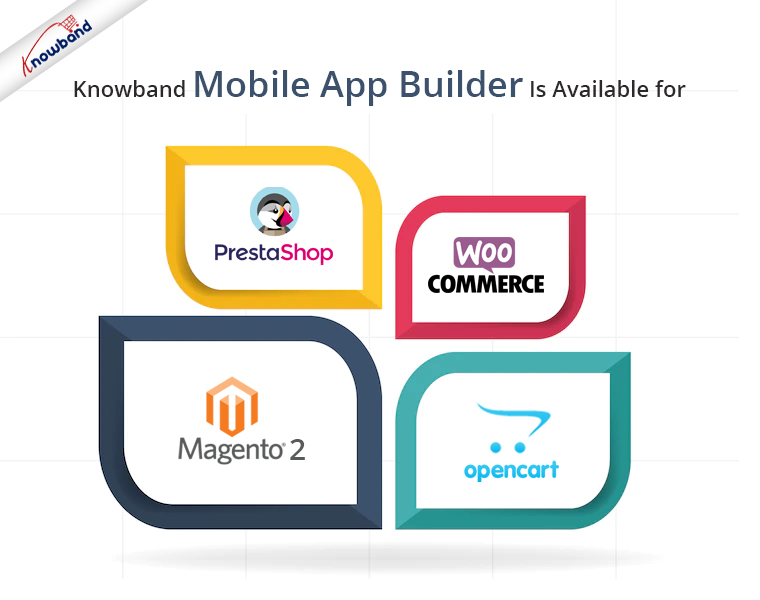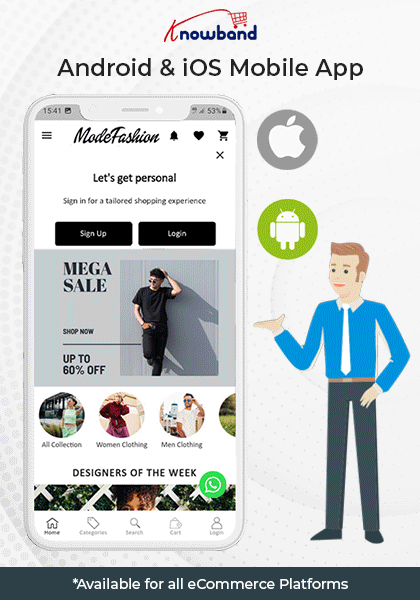Apple App Store has such a jam-packed app environment, that sometimes publishing your app there becomes quite an arduous task. As per a survey, there are around 2 million apps available in the Apple store. Entering into this huge competition isn’t everyone’s cup of tea and often you find your App declined by Apple Store. This data isn’t stopping; every day new applications are being built and published.
According to a report on Statista, after the Google Play Store, Apple leads the list with the most number of applications available:
It is quite unfortunate that some of the apps fail to pass the iOS gatekeepers and get rejected by the store. For beginners and also for professionals, it isn’t that easy to understand why their app got declined by the iOS store and what to do next. So, here are a few reasons why your app gets declined on the Apple store along with their solutions. Keeping these points in your mind would surely get your app published in one shot. Additionally, the developers whose app got rejected can retry and get it published with these measures.
Recommended Read: What to do if your app was declined on Google Play Store?
Why does your App gets declined on the Apple Store?
1. Crashes and Bugs
Apple isn’t lenient for apps that contain any kind of bugs or crashes. Make sure your app works fine before sending it for approval. If during testing, Apple regulators find any kind of unstable app performance, your app will surely get rejected.
2. Poor Performance
Often it happens that the app looks stunning and reliable, but when it comes to the performance they fail miserably. Either the app takes a huge time to load or it doesn’t meet the user’s expectations. Try to make App’s performance optimal if you don’t want your app in the rejection bin. You can even hide app loading time by making the right splash screen for your app.
3. Privacy
The privacy policy of the Apple App Store is very strict. You need to carefully read all the privacy policy requirements before publishing it. If you don’t provide enough privacy details in your application, it will lead to app rejection.
Recommended Read: How to save data to firebase in swift language using iOS?
4. Broken Links
Broken links have been one of the top reasons for app rejection in the Apple store. Before submitting an app for approval, go through every app page and check if all the links are working fine. There are various tools available for checking broken links in an application, I would suggest trying them at least once.
5. Bad App UI
Before designing the interface of your application, in order to meet design expectations and quality, get along with Apple’s Design Guidelines. These guidelines will enrich you with a better idea of how to properly design the user interface of an application which will bring out the best results for you. Here is an example illustrating what not to do while designing app interfaces.
6. Inaccurate App Description
Lack of app description, metadata, screenshots, and preview could possibly be the reason behind app declination. The incorrect information about the application can also cause App Store rejection. Try to keep your description to the point and accurate. Also, make sure your app doesn’t point out any lies. If your app description is misleading, you might find yourself in the hot water.
7. Payment System
If your software uses in-app purchases or digital subscriptions, transactions must go through the in-app purchasing system. Otherwise, your app will face rejection while reviewing. This is something which you should keep in mind while upgrading your website to a mobile application.
Recommended Read: How to download the Android/iOS app from the Diawi link?
Other Reasons for App Store Rejection
There might be a few other reasons for app rejections as well. So, If you have submitted your app to the Apple store for approval and it got rejected for some unknown reason, you can contact Apple support.
How to avoid app rejection from Apple App Store?
The above discussed were some of the basic reasons for app rejection. One thing is certain before submitting your app, you can avoid such rejections if you are careful while app development. Now let’s see ways through which you can save your app from hauling and get it approved:
1. Test your app before sending it for approval:
App testing is a very necessary and very basic step. Any bugs or errors, if found in-app functionality, should be curbed out instantly. Before sending the application for the approval process, it should be thoroughly checked on different devices for performance issues. Fixing all the major errors could simply prevent your app from getting rejected by regulators. Test your app properly and then send it for review, and hopefully, you won’t have any issues.
2. Add proper privacy details in the app:
As per Apple’s guidelines, two types of links are must in your app, if you want it to be published:
- Support link with contact information.
- Privacy Policy page link.
I would suggest you make your application compliant with GDPR rights and Apple’s privacy policy for the safe side.
3. Your App icon and UI should be effective:
The app icon also plays a major role in app publishing on an iOS store. If your app consists of a similar kind of icon which already exists in the App Store, it will face rejection. Your app icon speaks about what your app provides to the users, so, try to make an effective app icon. Also, check your app UI shouldn’t look crammed up.
Recommended Read: 10 Tips for Creating an Icon for a Mobile App
4. Keep the App’s Metadata Accurate:
Your app description or the metadata should not discuss or point to any other mobile platform. Your app metadata should be accurate. Ensure that app content and functionality are in sync with each other and both together make a good combination.
5. Payment should not be linked to third-party mechanisms:
Apple neither accepts payment outside its App Store for one-time purchases nor for digital subscriptions. So, you should make sure that all the purchases from your application go through the user’s iTunes account.
6. Push Notifications should be precise:
Push notifications are a marketing tool which surely is a great way to engage your users who use your app. However, you should make sure that your app is registered with the APN (Apple Push Notification) service or else it will be declined by the App Store.

Wrapping Up
This rejection process of Apple is basically for preventing users to deal with a buggy or spam applications. If they become lenient, the Apple store would be full of misleading apps and it would ultimately affect their brand image. So, there are valid reasons why the apps get rejected by Apple. This approval process wouldn’t be a headache for you if you keep check of all the above-discussed checkpoints while developing an eCommerce mobile app and getting it published. They would surely help you with hassle-free app approval. So, keep a check on app rejection reasons and start reaping iOS store benefits.
Every portable device is totally compatible with the apps developed by the eCommerce mobile app provider. They are small and easy to use. Your eCommerce website is easily accessible to online customers. In spite of the fact that a sizable portion of the eCommerce market has already converted their websites into fully functional mobile stores, our job is to remove the obstacles in your way and make this process considerably simpler for you.











I submitted my app for review in apple store and my app got rejected. Now I want my refund back. Please guide if there is any process regarding that.
Thanks for the article. It helped me a lot to understand about how to publish an app on the apple app store.
I am just about to launch my app and I just want to ask you is there any fee for publishing an app on the apple app store or it’s free?